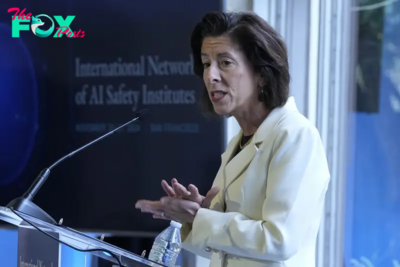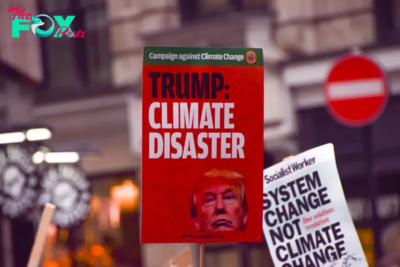US News
Police Dismantle Pro-Palestinian Encampment at MIT, Move to Clear Others
Police dismantled a pro-Palestinian tent encampment at the Massachusetts Institute of Technology early Friday and moved to clear protesters from University of Pennsylvania’s campus in Philadelphia, hours after police tear-gassed protesters and took down an encampment at the University of Arizona.
In Cambridge, Massachusetts, video showed police roaming through the MIT encampment. Police in riot gear arrived around 4 a.m., encircled the camp and gave protesters about 15 minutes to leave. Ten students who remained were arrested, the university’s president said. A crowd outside the camp began gathering and chanting pro-Palestinian slogans but were dispersed by 6 a.m.
At the University of Arizona in Tucson, campus police in riot gear fired tear gas late Thursday at protesters before tearing down an encampment that included wood and plastic barriers on campus. In statement, the University of Arizona said it made the decision because the encampment violated school policy.
“A structure made from wooden pallets and other debris was erected on campus property after 5 p.m. in violation of the policy,” the school said in a statement. “University officials issued warnings to remove the encampment and disperse. The warnings were ignored.”
The school also said that police vehicles were spiked, and rocks and water bottles thrown at officers and university staff.
In Philadelphia early Friday, police detained people who were at an encampment that has been in place at the University of Pennsylvania for more than two weeks. Officers moved in after giving protesters a warning to leave campus or face possible arrest.
Tensions have ratcheted up in standoffs with protesters on campuses across the United States and in Europe. Some colleges cracked down immediately, while others have tolerated the demonstrations. Some have begun to lose patience and call in the police over concerns about disruptions to campus life and safety.
The protest movement began nearly three weeks ago at Columbia University in New York City. It has since swept college campuses nationwide, with demonstrators generally seeking to draw attention to the deaths in the Israel-Hamas war or calling for their schools to stop doing Business with Israel or companies that support its war efforts. More than 2,500 people have been arrested.
The move at MIT comes several days after police first attempted to clear the camp only to see protesters storm past barriers and restore the encampment, which includes about a dozen tents in the heart of the campus in Cambridge.
Before removing the encampment, MIT earlier in the week had started suspending dozens of students involved in the encampment, meaning they wouldn’t be able to take part in academic activities nor commencement.
Protesters insisted the move would not stop them from demanding that MIT end all ties to the Israeli Military. They encampment had been up for at least weeks and especially angered Jewish students, who have held counterprotests near the camp.
“This is only going to make us stronger. They can’t arrest the movement," Quinn Perian, an undergraduate student at MIT and organizer for MIT Jews for Ceasefire, said. “We are going to continue and won’t back down until MIT agrees to cut ties with the Israeli Military. MIT would rather arrest and suspend some students than they would end their complicity with the genocide going in Gaza.”
The encampment had been up for at least two weeks and especially angered Jewish students, who have held counterprotests nearby. They covered a lawn with small Israeli flags and put up posters of some of the people abducted by the militants in the attack that ignited the war in Gaza.
MIT President Sally Kornbluth, working to strike a balance between recognizing the suffering in Gaza and concerns about the "safety of our community,” had warned Monday the encampment would have be removed.
In a letter acknowledging Friday's arrests, she wrote that her responsibility is “to make sure that the campus is physically safe and functioning for everyone ... and that everyone feels free to express their views.” The encampment, she wrote, “increasingly made it impossible to meet all these obligations.”
-

 US News1d ago
US News1d agoHow TIME and Statista Determined the Best Companies and Colleges for Future Leaders for 2025
-

 US News1d ago
US News1d agoWorld’s Best Brands – United States
-

 US News2d ago
US News2d agoFlorida Man Arrested and Charged With Planning to Bomb the New York Stock Exchange
-

 US News2d ago
US News2d agoU.S. Gathers Global Group to Tackle AI Safety Amid Growing National Security Concerns
-

 US News2d ago
US News2d agoTexas Offers Trump Land on U.S.-Mexico Border for Potential Mass Deportations
-

 US News3d ago
US News3d ago4B Is Not the Winning Strategy to Resist the Patriarchy People Think It Is
-

 US News3d ago
US News3d ago‘Bomb Cyclone’ Threatens Northern California and Pacific Northwest
-

 US News3d ago
US News3d agoClimate Action in Trump 2.0
















